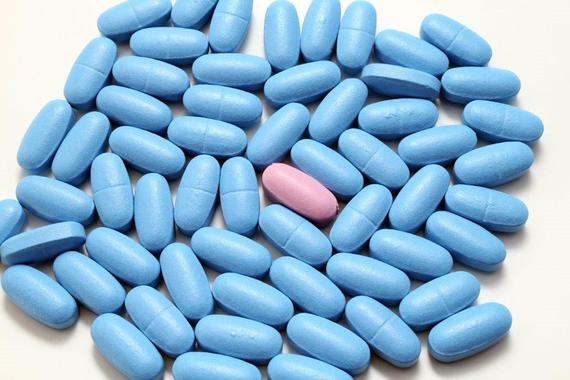Women have been feeling gender injustice in the bedroom for a long time. If you look at the sexual dysfunction scoreboard you would see 26 FDA approved medications for men -- erectile dysfunction -- and zero for women. It is clear not much attention has been paid to women's struggles under the sheets. The FDA wants to approve medications with minimal side effects, substantial health benefits and avoid potential for misuse.
The most common female sexual dysfunction is called hypoactive sexual disorder which is a lack or complete absence of sexual desire. It is estimated that 1 in 10 (16 million) women in the United States suffer from lack of libido. Sexual desire is much more complicated and difficult to compare in women vs. men. Unlike men, women's sexual desire, excitement and energy tend to begin in the organ above the shoulders as compared to below the waist. Daily stress such as work, money, children, relationship challenges and low energy are common issues contributing to having a low libido in women.
Enter a drug called Flibanserin. Also known as Addyi, it was the first official drug to show some benefit in improving sexual satisfaction in premenopausal women. Recently approved after being rejected twice in the past, it was the drug's side effects that were a primary concern in the FDA's decision-making process.
While women showed an improvement in the number of satisfying sexual events, frequency and intensity of desire, this is definitely not the miracle drug. Studies show it has a modest 8 to 13 percent increase in sexual improvement, so the risks may outweigh the benefits. Addyi is to be taken daily at bedtime. Unlike Viagra that brings more blood flow to the penis, Addyi increases hormones, serotonin and dopamine, in the brain to improve libido. If women do not show any improvement after eight weeks then Addyi is not effective in their case.
The FDA had serious concerns about the side effects of Addyi, including drowsiness, fainting and low blood pressure, which are all exacerbated when taking certain medications such as antidepressants and when drinking alcohol. So taking Addyi and going to "Happy Hour" with your favorite bed buddy would not be a good idea. As with any medication, discussing the benefits vs. the risks with your physician is part of the process in determining if you are an appropriate candidate for this medication.
It's exciting for women who have struggled with hypoactive sexual disorder to be recognized and have a medication alternative. Not only is it a viable option for this disruptive sexual dysfunction, but the FDA is showing support in the challenges with female sexual health. Women simply want to have the same attention as men in sexual health and responsiveness from the medical community.
Some women may want to try Addyi for 3-6 months to see if there is any improvement in sexual desire. Others may choose to take their partner away for a long weekend in a romantic and relaxing setting leaving all electronics behind. As it should be -- the choice is yours!
